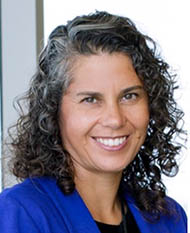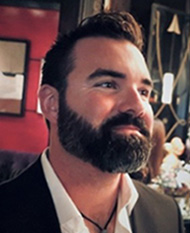


The AI Ready and Equitable Atlas for Diabetes Insights program (AI-READI) is funded by the National Institutes of Health (NIH) through the Bridge to Artificial Intelligence (Bridge2AI) program, a large trans-NIH initiative to generate new datasets for advancing artificial intelligence (AI). One component of AI-READI is the Skills and Workforce Development Module, which includes the development of a yearlong mentored research internship program aimed at expanding the future workforce at the intersection of data science/AI and the biomedical sciences and clinical research.
This internship program will be centered on developing skills and providing early exposure to AI, data science, and research, as well as the opportunity to gain exposure to faculty with expertise in AI and biomedical, clinical, and behavioral research. The program will include direct mentorship for a cohort of interns from AI-READI investigators/faculty mentors, as well as opportunities for career development. The program will correspond with an academic year timeline and will include an in-person two-week bootcamp at the University of California San Diego (UC San Diego) in the summer.
After bootcamp, interns will work on a mentored research project related to AI-READI at sites across the country under the mentorship of AI-READI faculty mentors, while also engaging in a didactic curriculum conducted throughout the year. A year-end research symposium event will be held, which will allow interns to present their projects as well as provide an opportunity to interact with other interns and faculty members.
This is a paid internship, with monthly stipends ranging from about $2200 per month for predoctoral interns to $4500-$5500 per month for post-doctoral interns. Applicants from groups underrepresented in the biomedical research workforce are encouraged to apply.
Intern projects can span a wide range of areas. Pairings with research mentors will be made based on the intern’s area(s) of interest and career goals. Projects may involve direct analyses of the data generated by the overall AI-READI project (which involves multi-modal data collection from a diverse group of individuals with diabetes), developing tools for assessing or analyzing data, or advancing data standards related to a wide range of involved data types (e.g., electronic health records, wearables).
The application is now available for the 2025 - 2026 yearlong internship program.
In order to apply to the AI-READI Program applicants must fulfill the following requirements:
The AI-READI Internship Program is multi-institutional and includes faculty from a wide array of institutions. Lead faculty are from the UC San Diego, but teaching faculty and research mentors will be derived from the entire AI-READI team, which includes the University of Washington, the University of Alabama at Birmingham, Stanford University, Johns Hopkins University, and Oregon Health and Science University. All faculty members included in the program have had extensive experience in training and mentorship and represent multiple disciplines relevant to AI, data science, and clinical domains.

(Principal Investigator / Program Director) Assistant Professor Division Chief for Ophthalmology Informatics and Data Science Shiley Eye Institute at UC San Diego

(Co-Principal Investigator / Program Director) Professor of Ophthalmology Research Director, Hamilton Glaucoma Center, Data Coordinating Center Shiley Eye Institute at UC San Diego

Professor in the Department of Cognitive Science, the Halıcıoğlu Data Science Institute, and the Neurosciences Graduate Program Halıcıoğlu Data Science Institute, Associate Director UC San Diego

Associate Professor in the Department of Cognitive Science, the Halıcıoğlu Data Science Institute, and the Neurosciences Graduate Program UC San Diego

Director, UC San Diego Research Ethics Program; Associate Professor, Herbert Wertheim School of Public Health and Human Longevity Science and UCSD Design Lab; Director, ReCODE Health

Project Scientist Herbert Wertheim School of Public Health & Human Longevity Science UC San Diego
Our internship program is part of a broader Training Workgroup associated with the NIH Bridge2AI Initiative that includes other training programs as well. The links include additional resources such as lectures on Artificial Intelligence (AI) and Machine Learning (ML) in biomedical research and education about ethical principles.
Partner GC links and learning resources:
TRM Online Learning Resource:
Additional Resources:
Please email UC San Diego program coordinator Victoria Patronilo
Information about diversity and inclusion is available through multiple venues. First, there are several websites available that provide information about diversity initiatives across the entire campus (diversity.ucsd.edu) and the (School of Medicine). Many departments have their own websites as well. Virtually all departments at UCSD have identified an Equity, Diversity, and Inclusion (EDI) ambassador, typically a faculty member who spearheads diversity-related initiatives in their areas/specialties and also collaborates with various entities across the medical school.
There are several active affinity organizations for UCSD medical students. These include:
The Association of Native American Medical Students (ANAMS)
The Asian Pacific American Medical Students Association (APAMSA)LGBTQ
Pharmacy and Medical Students (LGBTQ-PhaM)
The Latino Medical Student Association (LMSA)
Medical Students for Justice (MS4J)
The Student National Medical Association (SNMA)
UCSD also offers a curricular pathway called Program in Medical Education – Health Equity (PRIME - HEq), which part of a system-wide effort at the University of California to train physicians better able to meet the needs of the diverse Californian population who are traditionally underserved by the medical system. PRIME-HEq faculty work with students to identify populations or communities at risk for health disparities. Students will then receive exposure, training, and the opportunity to work with the identified group to further their passion in the area and provide knowledge and skills to better equip the students to improve health equity for the group.